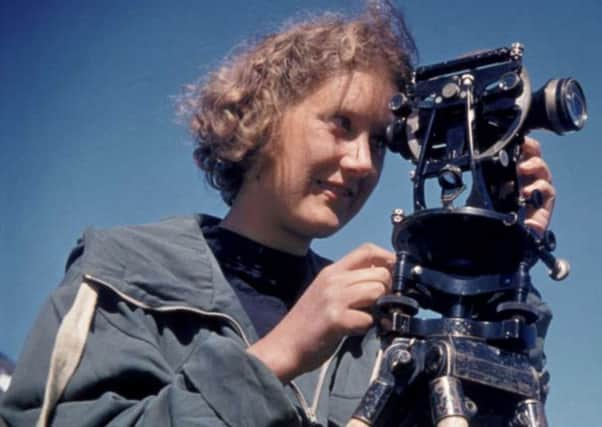Obituary: Prof Cuchlaine King, scientist


In 1965 she became the first woman to be allowed by the Canadian government to join an expedition to the Arctic, setting the pattern for future generations.
Working initially on sand movement and coastal erosion, and later glaciation, she travelled from the Mediterranean to the Arctic, to communist China, New Zealand, North and South America, Iceland and Norway.
Advertisement
Hide AdAdvertisement
Hide AdHer expeditions combined an academic interest in geomorphology, studying the physical features of the earth’s surface, with a lifelong love of the natural environment – from the ice fields of the Arctic to the valleys and hills of the Yorkshire Dales, where her family had its roots and to where she returned at the end of her career.
Essentially a private person who sought neither the limelight nor constant companionship, she nevertheless valued and was stimulated by the exchange of ideas with friends and colleagues.
Cuchlaine Audrey Muriel King was born in Cambridge in 1922, and was proud of her first name which her mother, Margaret Amy King (née Passingham), had invented especially for her. Neither she, nor anyone in the family, knew what its origins might be.
Modest, unassuming, plain-speaking and without a hint of grandeur, Prof King had scaled heights – literally as well as figuratively – that few can equal. In the mid-50s she was photographed atop a glacier in Iceland, in above-the-knee shorts, a shirt, walking boots and woolly socks. Not a hint of a jacket, head protection or climbing equipment: just a stick.
Advertisement
Hide AdAdvertisement
Hide AdWith characteristic modesty, she said more than once that her “only achievement” had been to “pave the way for gender equality in Arctic exploration,” recalling the research she undertook on Baffin Island in the far north of Canada in the mid-1960s with the eminent geologist, Prof Jack D Ives, a former student of hers at Nottingham University.
She had joined his field trips to Iceland in 1953 and 1954, where on one expedition tragedy struck, with the deaths of two members in blizzard conditions. He chose Cuchlaine alone to accompany him on the long and arduous night-time trek to raise the alarm.
For the next ten years, however, the Arctic itself would remain forbidden territory for women.
Having argued from every corner – jealous wives resenting their geologist husbands working thousands of miles from home alongside female colleagues; lack of resilience and physical strength of female researchers; and even poor toilet facilities – the Canadian government eventually relented when Jack Ives fought to get Prof King on his Baffin Island expeditions in the mid-1960s.
Advertisement
Hide AdAdvertisement
Hide AdHer father, the eminent geologist William Bernard Robinson King, was her role model. She and her sister, Margaret, both followed his example by gaining BAs in geography at Cambridge in the early 1940s.
After graduating, Cuchlaine joined the Women’s Royal Naval Service, the Wrens, where she was a meteorologist and surveyor throughout the war. She returned to Cambridge to complete her doctorate, taught for a year at Durham University, then moved to Nottingham University where she became a professor of physical geography until her retirement in 1982, when she moved to the family home at Worton in Wensleydale.
She never bemoaned the lack of opportunities afforded to women in the 1950s and 60s, but created her own, breaking down barriers to progress for future generations who, sometimes literally, followed in her footsteps.
She was ahead of her time, writing books and publishing influential articles on her specialist subjects, glaciation and coastal erosion, both of which have such resonance today in relation to climate change.
Advertisement
Hide AdAdvertisement
Hide AdLike many of her generation, rather than fighting for equality of opportunity for women, she led by example, ensuring that her chosen academic discipline could benefit from the best brains, regardless of gender.
She is survived by a niece and three nephews.